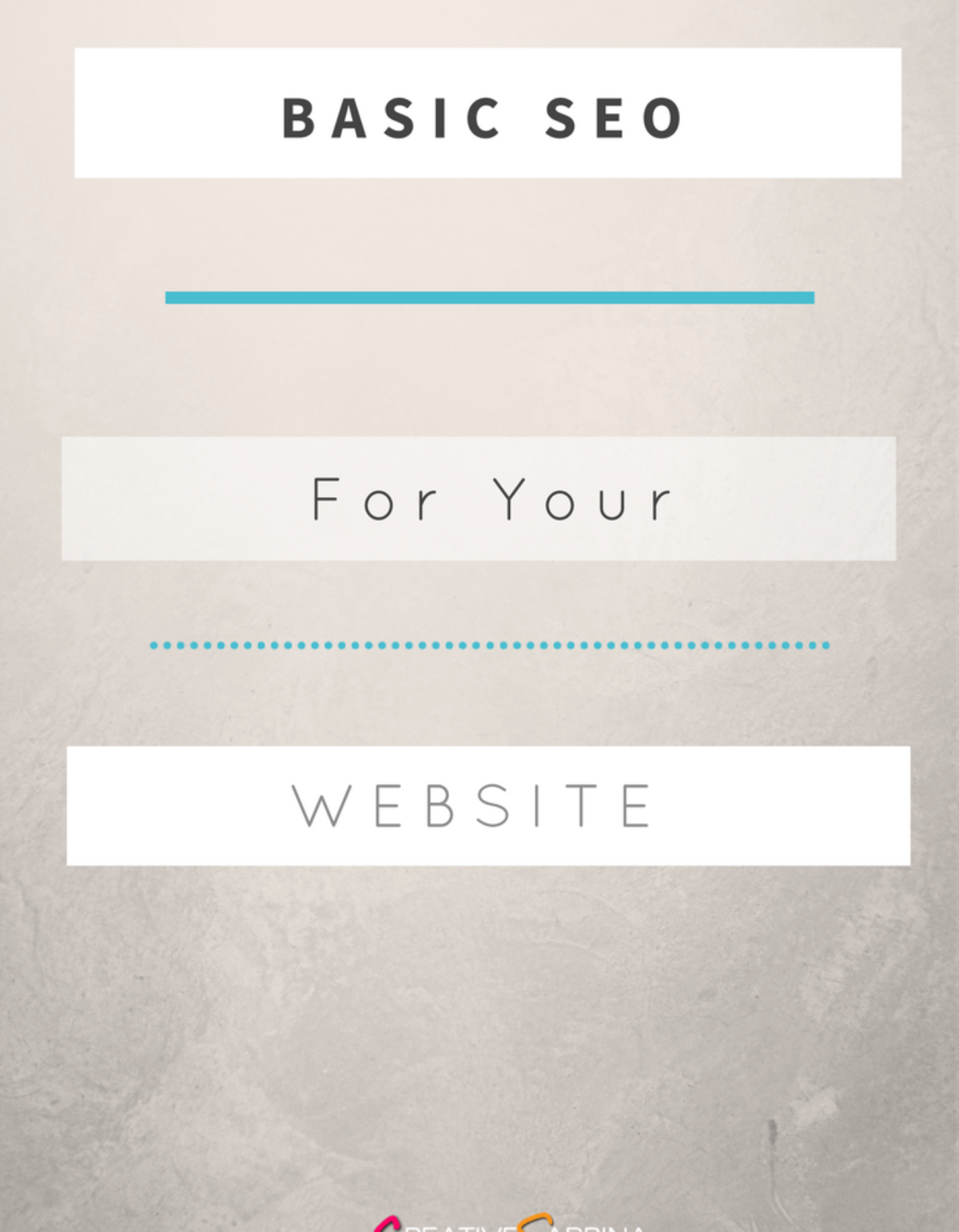
The Best Basic SEO for Your Website
Introduction
SEO = Search Engine Optimisation is a technique to increase your placement on a search engine page.
There’s certain activities that will help to improve your rankings. Making sure your readers can find you!
It really is important to have an overall SEO strategy. Start by narrowing down your focus to one main term that describes what your business does and what your pages and posts are about.
SEO is a strategy you need to be in for the long haul. Using WordPress makes SEO easier. Read my 5 WordPress plugins that features the best SEO plugin.
It’s best practice to start your on page SEO as soon as possible. Here are some standard tips you can instantly use.
URLs
Make your links friendly. Friendly URLs – keyword in the first 3-5 words.
Keyword/Phrase
Have one main keyword per page
‘Keyword’ can be more than one word (longtail keyword)
Don’t repeat keywords throughout the site
Keyword should be in first 100-150 words of content
Example – Your website is about baking, you want to boost your page about how to bake a sponge cake. It is best to have your URL as yoursite.com/how-to-bake-sponge-cake rather than yoursite.com/bake
H1
Use only one H1 heading tag per page.
Try to put the main keyword that the page is about in the H1 heading tag.
Use unique H1 heading text for each page. (Don’t repeat the same H1 heading text on other page
Example – Your page has a new recipe for a cake. Try your heading as ‘Double Chocolate Cake Recipe’ – your keyword to target here would be chocolate cake recipe.
Title Tag
The most important aspect of on page SEO
The first word that goes in your title tag should be the keyword you have chosen for that particular web page. Then you can add your brand name next.
Make sure it’s under 55 characters
Internal Linking
It is crucial to show the search engines the keywords that are vital to your business or blog in the form of link text. (This is the basis for “link building.”) So be sure to set up internal links for appropriate keywords – not ‘click here’ or ‘read more’. Link one of your posts to another.
Example – You have a new recipe about decorating cupcakes, but you also have a post about how to bake cupcakes. Within your recipe content you would link to your how to post ‘Read more about how to bake cupcakes’ not ‘click here’.
Meta Description
Meta descriptions don’t help you rank in the search engines. However, they are the snippets of text that search engines use to describe your listing that customers will see. Think of this like a sales ad. You want to draw people in and make them want to visit your website.
Character count 150 – 160
Meta Keywords
Don’t sweat. These haven’t mattered since the late 90s. Google doesn’t look at them*. However there’s no harm in having them there.
A couple of keywords will be fine.
Do not spam.
H2
Don’t skip H1 to H3.
H2 provides a small SEO weight, but necessary.
Search engines will have a better idea of what the page is about if you stick to relevant natural language. Think of this a subheading.
Bolded Keywords
Very slight SEO weight.
Bold the keyword once. (Do not bold it every time it appears on the page.)
Bold only one keyword. Don’t try to go after multiple keywords.
Img Alt Text
Search engines don’t have eyes. Alt tags tell them what your image is about, therefore giving it a better understanding of your website.
Avoid duplicating alt tag content
Example – If your picture is a cupcake then name it ‘pink-icing-cupcakes’ and not image007
Word Count
Pages that rank on page 1 of Google have a word count above 2,000 words…..however, this will of course vary by industry. In general, there is no minimum word count when it comes to quality content.
[bctt tweet=”Quality is better than quantity #SEO” username=”CreativeSabrina”]
Things to remember on page
Different meanings of keywords through page – like a thesaurus. Google can then determine a pages relevancy.
Summary
SEO changes, and some factors that mattered in 2006 don’t matter anymore. It’s important to stay up-to-date on your SEO knowledge, even just the very basics.
It takes a while – implementing basic SEO doesn’t mean you will automatically shoot up to page 1 on search engines!
Sources/Useful Links